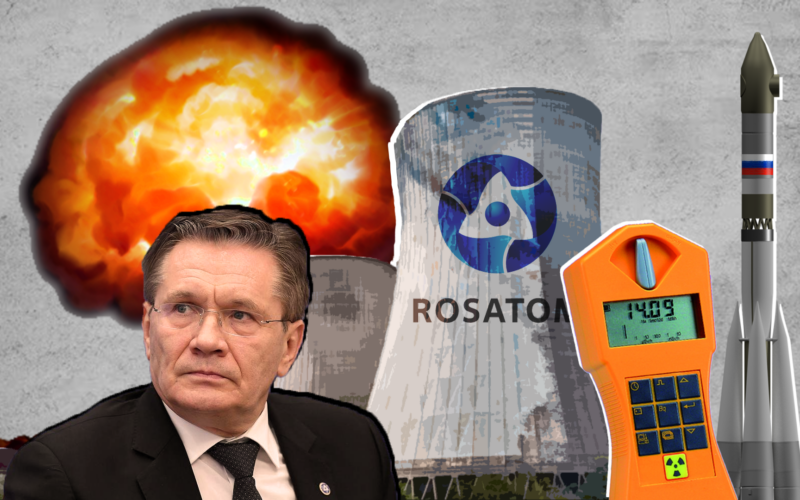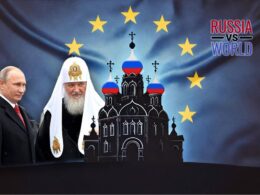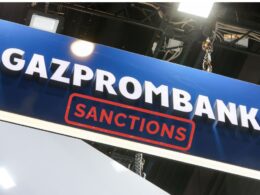In the intricate dance of global geopolitics, the Russian nuclear energy sector emerges as a critical player, often shielded behind the facade of the ‘peaceful atom.’ However, beneath the veneer of nuclear cooperation lies a complex reality: Is the face of “Rosatom” concealing a nuclear death machine with far-reaching implications?
The international community, in its deliberations on sanctions, has regrettably overlooked the Russian nuclear behemoth – the state nuclear energy corporation, “Rosatom.” While the West has scrutinized the viability and nature of imposing sanctions on this energy monopolist, the urgency of such measures has become increasingly evident in the face of global and regional threats emanating from Russia’s nuclear prowess.
A decisive step toward addressing this issue was taken at the end of December 2023, with the submission of a proposed bill to the US Congress, aiming to ban the import of Russian uranium raw materials. This move underscores the need for a comprehensive reassessment of the role played by the Russian nuclear complex in shaping global energy dynamics.
Mykhailo Gonchar, President of the Centre for Global Studies “Strategy XXI,” elucidates the paramount importance of imposing sanctions against “Rosatom” and how such measures contribute to achieving strategic stability.

The Russian energy quadra – encompassing oil, gas, coal, and the often overlooked nuclear sector – serves as instrumental tools for reshaping the global energy landscape and exerting influence on geoeconomic and geopolitical arenas. Notably, these sectors generate significant revenues, facilitating the functioning of Russia’s military machinery.
Within the realm of sanctions, the nuclear component of the Russian energy sector has received inadequate attention. While the oil industry remains the most lucrative, yielding around $200 billion annually over the last five years, the focus on initial sanctions seems rational. However, a deeper examination reveals a more nuanced situation.
“Rosatom” export revenues amounted to $11.8 billion in 2022, seemingly dwarfed by oil revenues. Yet, the significance extends beyond mere financial considerations. It is crucial to dispel the prevailing perception of “Rosatom” as a purveyor of the ‘peaceful atom’ and acknowledge its control over every aspect of nuclear-related industries, including the production of nuclear weapons.
The “Rosatom” corporate conglomerate, as of 2022, comprises 435 organizations with a total workforce of 337,400 employees. The prominence of the “Nuclear Weapons Complex” cluster, employing 87,600 individuals, underscores its crucial role in the entire cycle of nuclear weapons production, from development and manufacturing to delivery and subsequent disposal. The Russian Federal Nuclear Center, a subsidiary of “Rosatom,” engages in research and development for nuclear weapons, exploiting the absence of international sanctions to facilitate import operations crucial for the Russian military-industrial complex.
International calls for sanctions on Russia’s nuclear energy sector date back to April 2022 when the European Parliament adopted a resolution advocating an immediate embargo on Russian oil, gas, and nuclear fuel. The plan of the Yermak-McFaul Expert Group on Russian Sanctions echoed this sentiment. However, reluctance among global players to act on these proposals persists, driven by a myopic focus on the ‘peaceful atom’ and the desire to avoid disruptions to business chains.
“Rosatom” actively leverages the Western nuclear lobby to perpetuate this perspective, but such an approach is flawed, especially in the context of Russia’s aggression against Ukraine. Financing the Russian nuclear weapons machine through the purchase of nuclear fuel or technologies from “Rosatom” not only undermines efforts to achieve strategic stability post the suspension of Russia’s participation in the START III but also perpetuates the threat of nuclear blackmail against Ukraine and Europe.
The capture of Europe’s largest nuclear power plant, Zaporizhzhya NPP, by Russia further amplifies the urgency of decisive action. “Rosatom’s” control over the captured NPP introduces the potential for a catastrophic nuclear disaster, emphasizing the need for a robust international response.
Failing to curtail the growth of the Russian nuclear giant in the aftermath of a full-scale war encourages Russia to escalate and expand its aggression. It is imperative for Western pragmatists to recognize that purchasing Russian nuclear fuel or technologies from “Rosatom” contributes directly to the development of Russian nuclear forces, which pose a grave threat to both Ukraine and the broader Western world. The time for comprehensive sanctions on Russia’s nuclear complex is now, as the consequences of inaction extend far beyond the immediate geopolitical landscape.
THIS ARTICLE FIRST APPEARED IN UKRAINEWORLD








